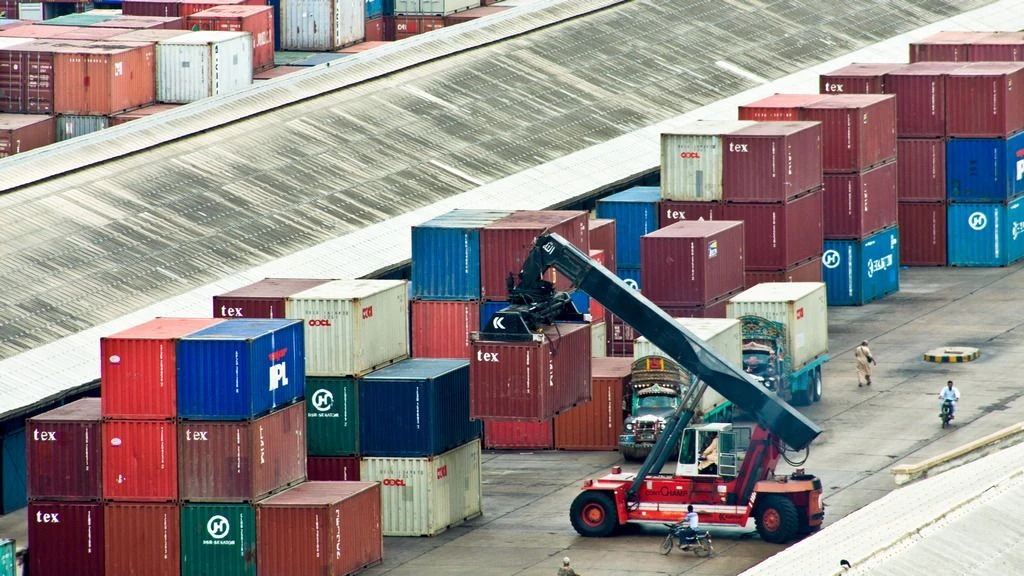Significant improvement in exports requires wide structural reforms: BMP

Stay tuned with 24 News HD Android App

As the exports from Pakistan during Sept 2024 amounted to Rs790.12 billion against Rs769.4 billion in Aug 2024, showing a nominal increase of 2.69 percent the Federation of Pakistan Chambers of Commerce & Industry’s Businessmen Panel (BMP) stressed the need for putting the economy on a sustainable growth trajectory by providing incentives to the industry, lamenting that the economy is facing multiple challenges of low growth in exports, with fiscal accounts under immense pressure due to heavy interest payments.
FPCCI former president and Businessmen Panel (BMP) Chairman Mian Anjum Nisar lamented that the present situation shows the government would find it difficult to achieve the industrial growth and high export target, leading to pressure on foreign exchange reserves of the country. He asked the government to address the underlying structural vulnerabilities through smooth energy supply at competitive rates, as country’s overall export proceeds continued to shrink.
Quoting the exports data, he said that Pakistan's revised trade deficit for September was $1.83 billion, compared to $1.772bn the previous month, reflecting a 3.39% rise.
Meanwhile, the trade deficit has widened by 20.69% compared to September 2023's deficit of $1.52bn. Exports increased by 2.82% to $2.84bn compared to $2.76bn in August 2024. Likewise, imports in September 2024 also rose 3.61% to $4.67bn compared to $4.51bn in the previous month.
According to the provisional figures compiled by PBS, in Pakistani rupees terms, exports from Pakistan during September, 2024 amounted to Rs790.12bn as against Rs769.4bn in August, 2024 and Rs735.69bn during September, 2023 showing an increase of 2.69% over August, 2024 and of 7.40% over September, 2023.
Main commodities of exports during September, 2024 were Knitwear (Rs124.743bn), Readymade garments (Rs94.151bn), Bed wear (Rs80.751bn), Cotton Cloth (Rs55.93bn), Rice others (Rs51.93bn), Towels (Rs25.2bn), Oil seeds, Nuts & Kernals (Rs24.92bn), Madeup articles (excl towels & bedwear) (Rs19.94bn), Basmati rice (Rs19.63bn) and Cotton yarn (Rs14.47bn).
Imports in rupee terms in September 2024 amounted to Rs1.3 trillion (provisional) as against Rs1.26tr in August, 2024 and Rs1.176tr during September, 2023 showing an increase of 3.50% over August, 2024 and of 10.54% over September, 2023.
Main commodities of imports during September, 2024 were Petroleum crude (Rs143bn), Petroleum crude (Rs133.04bn), Natural gas liquified (Rs87bn), Electrical machinery & apparatus (Rs75.91bn), Palm oil (Rs69.9bn), Iron & steel (Rs51.42bn), Plastic materials (Rs50.16bn), Fertilizer manufactured (Rs29.72bn), Mobile phones (Rs28.56bn) and Medicinal products (Rs27.19bn).
As imports fell more than the decline in exports, the trade balance of goods and services improved. Exports are constrained by domestic production issues related to the slowdown of demand in the main export markets and high domestic production costs. Imports are currently constrained by sluggish domestic demand and administrative measures to protect the official foreign reserves level.
Since no immediate reversal of these developments is envisaged, the trade balance may further stabilize or further improve somewhat in the upcoming months.
He observed that the low textile and clothing exports is gaining momentum over the long time owing to multiple factors including high energy costs, stuck-up refunds and a slump in global demands despite the massive depreciation of the rupee. He believes that one of the main reasons behind low exports was the exchange rate instability. The discontinuation of duty drawbacks on local taxes and levies by the government has also created liquidity issues for the export sector.
Mian Anjum Nisar said that the government has increased the gas and electricity tariffs and, at the same time, also the subsidy has been phased out, which will further increase the cost of production. The overall money supply growth remains compatible with a return to low and stable inflation.
But the outlook of M2 is broadly dependent on fiscal accounts which are under immense pressure on account of heavy interest payments and rehabilitation spending. Nonetheless, the first 6 months of CFY have ended with some developments; containing fiscal deficit and surplus in primary balance due to effective fiscal management. The State Bank of Pakistan is also enacting a contractionary monetary policy to contain inflationary pressure. However, a larger portion of volatility in the current price level is explained by supply-side factors.
He stated that a major enhancement in exports requires huge and wide structural reforms, urging the government to take business community on board, who are the real stakeholders in preparing policies to enhance exports, which is prerequisite for economic growth. As part of the agreement with the IMF, the government has announced discontinuing subsidies on energy for the export sector.
It is to be noted that while chairing a meeting of the National Export Development Board, the prime minister tasked the authorities concerned to take the country’s annual exports to $60 billion within three years. The prime minister asked the commerce ministry and other relevant departments to take all necessary measures to achieve the given target. He said the country’s exports crossed the $30 billion mark during the previous fiscal year, and the government’s policies also took the IT exports to over $3.2 billion.
